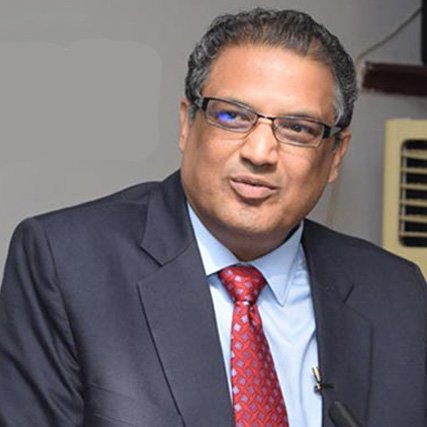Pakistan’s unique geographical conditions have made militarism essential for national security. The recent war has proven the benefits of militarism being a consistent priority for Pakistan. In the past, martial laws were also imposed to preserve militarism and enforce it within society. Sometimes through political interference, and at times through pressure, a sense of power was conveyed. In the recent war, militarism achieved a clear victory on its real front — the battlefield — and not only provided a strong justification for its existence but also silenced the skeptics. Pakistani militarism has at times been very unpopular, but mostly it has succeeded in aligning the majority’s opinion with it, implying that the conflict between militarism and the majority has been less, and the agreement has been more.
When Field Marshal Syed Asim Munir assumed the position of Army Chief, he was, in his own words, facing a Poly Crisis — a collection of numerous crises. The economic crisis was so severe that the country was on the brink of default. The political crisis was so intense that sit-ins and protests had paralyzed governance. In terms of external threats, there was a war against the Taliban in Khyber Pakhtunkhwa, a separatist movement in Balochistan, and a political war raging in Punjab. The crisis of May 9 dealt a blow to the rule of law and the dignity of the army. The judiciary had become so self-assertive that it almost claimed divinity; it was engaged in forming and dismantling governments based on political biases. Internationally, India was adamant on its dominance and had practically absorbed Kashmir. The United States had distanced itself from us for various reasons. General Asim Munir stated in Brussels that we have emerged from most of these crises and that the coming days will bring further improvement.
Before the 2024 elections, this humble writer had already explained the principles and norms of the Pakistani state through the two terms: popularity and acceptance. Today’s article is necessary to clarify the respective utility of militarism and majority. Even those who wholeheartedly accept militarism are dissatisfied with the space given to the majority. In fact, the civil-military divide is not new, but this divide is now touching its extreme limits. Just as it was necessary to overcome the Poly Crisis and to pull the country out of it, resolving this issue is also essential. The civilian space has shrunk, and the military space has expanded, creating a missing balance between militarism and the majority — a balance that is essential for sustainable development.
Granted, the majority is unorganized. Granted, the representatives of the majority are often corrupt. Granted, most of them are incompetent. It is also true that their governance has flaws. Granted, they fail to grasp international sensitivities. Granted, their decisions are delayed and often erroneous. Also granted that these representatives are neither well-educated nor competent enough to run the government effectively. But acknowledging all this, it must also be admitted that militarism cannot function without the majority. It must also be accepted that without civilians, the military cannot remain strong. It must be acknowledged that martial laws are unrepresentative, which is why they are unpopular and unsuccessful. It must also be recognized that no system in the world can succeed without taking the majority along, enabling them, and including their opinions.
It must also be admitted that dismissing civilian governments and political interference has always caused harm. The wounds inflicted by generals like Pasha, Zahir, and Faiz upon politics, media, and society have torn the fabric of our culture. Both militarism and majority have their shortcomings and strengths, but in the current hybrid system, there is an imbalance which must be rectified. The constitution clearly mentions civilian supremacy, and that remains the only path to national prosperity.
Today, a nuclear Muslim military — despite being a thorn in the eyes of its enemies — is counted among democratic nations because of the civilian veil or cover within which we have concealed our defense system. This system should only emerge in times of war, just like in the recent conflict, where these assets came to the forefront and subdued the enemy.
In the overseas gathering in Brussels, the Field Marshal clearly stated that Pakistan opposes terrorism and does not support proxy wars. In other words, under the current system, the policy of exporting jihad and keeping fronts hot through it has been denied. A very interesting point, which he reiterated in Brussels after the U.S., was that prior to 1979, Pakistani society was very balanced, but later, religious clergy and intolerance destroyed the society. If viewed in a broader context, this statement reflects not only an acknowledgment of extremism, intolerance, radicalism, political instability, and the overall moral decline of society but also a desire for reform.
Although, apparently, militarism and the government are on the same page right now, Field Marshal General Asim Munir has clearly stated that the rumors about a change in government are entirely baseless. Despite this clarification and explicit declaration, the existing contradictions between militarism and the government will continue to pose obstacles in this system. Militarism has begun to play a significant role in the economic sector in the name of mismanagement and corruption, whereas previously this was a completely civilian domain. In projects like Reko Diq mineral resources, SIFC, NHA, and other important sectors, militarism has gained dominance. Although military advice and technical support are certainly necessary, these are economic and technical fields and should be led by civilian professionals. In the past, all experiments of running the country, improving the economy and agriculture, or curbing corruption through militarism have repeatedly failed — yet lessons are not being learned from them.
The founder of Pakistan, Quaid-e-Azam Muhammad Ali Jinnah, laid the foundation of the first democratic state in the Muslim world, in which civilian supremacy is clearly defined. This path has been deviated from multiple times, but in the 1973 Constitution, all provinces, sects, and parties unanimously expressed their trust in parliamentary democracy. Even today, that same constitution remains — which, after Quaid-e-Azam, is the only other national consensus in Pakistan. Only by adhering to it can we move the country forward. The 18th Amendment is a vital document for provincial rights because misunderstandings in the name of provincial rights once led to the separation of East Pakistan. The constitution allows for every necessary change without altering its fundamental structure. What is needed now is to build the framework of the future through democracy and the constitution.
The army is the most important defensive arm of the nation. Our military is organized, experienced, and in many matters, perhaps capable too. But military dominance weakens the country from within. Only when militarism and the majority walk hand in hand can a welfare state be built.
 Colors
Colors  View Books
View Books 



